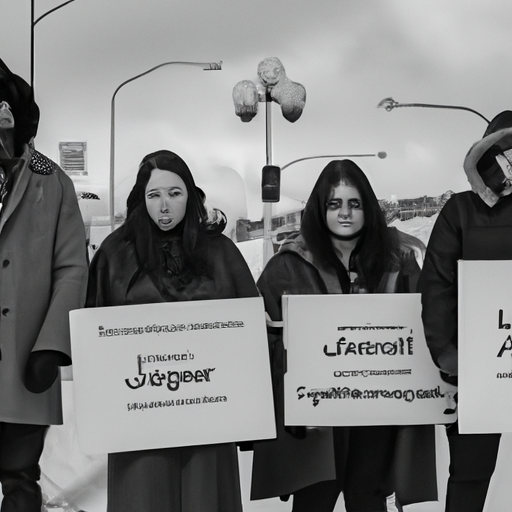Confronting the Canadian Opioid Crisis: First Nations Communities Sue Government of Canada
In recent times, there has been a deeply concerning escalation in the effects of the opioid crisis throughout Canadian provinces. Today, we focus on a significant development related to this ongoing crisis – a collective of Saskatchewan First Nations communities is leading a lawsuit against the Government of Canada. Inthis CTV News report, we delve into the communities’ claims and the ensuing legal fight.
A Dire Situation
The opioid crisis has reached staggering proportions in many parts of Canada. With increasing numbers of overdose deaths, addiction rates, and affected families, it has expanded into a full-blown public health emergency. The dire situation is particularly severe throughout the province of Saskatchewan, and particularly within its First Nations communities, who have been hit the hardest.
The Opioid Class Action
In response to the unhandled crisis, four Saskatchewan First Nations communities have launched an opioid class action lawsuit against the federal government. These communities hold the Government of Canada responsible for the proliferation and extreme effects of the opioids within their communities. The lawsuit is seeking recognition for the social disruption, rise in crime, and increased healthcare costs directly linked to the opioid pandemic.
Key Points of the Lawsuit
- The opioid class action seeks to hold the Government of Canada accountable for the opioid crisis within First Nations communities.
- The lawsuit argues that the Canadian government’s management of the crisis has been inadequate and has resulted in needless suffering and death.
- This case parallels the Canadian Opioid Abatement Class Action lawsuits made in other provinces, such as Ontario.
- The communities are demanding reimbursement for the increased healthcare expenses that they’ve faced due to the opioid crisis.
The Canadian Opioid Crisis and Its Social Impacts
The opioid crisis in Canada has had severe social impacts, far beyond the immediate health concerns brought on by addiction and overdose. Among the factors contributing to the crisis are homelessness, trafficking, and substantial crime increases—all of which can lead to the exacerbation of the problem. Moreover, the First Nations communities pursuing this lawsuit claim that the Federal Government has failed to address these social disruptions adequately, thereby fuelling the crisis.
Solutions: The Role of Naloxone and Other Efforts
The fight against the opioid crisis is multi-faceted. On the front line, naloxone has been widely distributed in many Canadian provinces in efforts to counteract opioid overdoses. However, while Naloxone can be effective in reversing the effects of an overdose, it does not address the underlying dire situation of opioid abuse and addiction. Therefore, more comprehensive efforts are required to prevent the misuse of opioids in the first place.
Joining Forces: The Continued Legal Battle Nationwide
It is worth noting that this lawsuit follows in the steps of the Canadian Opioid Abatement Class Action initiated by British Columbia. Ontario and other Canadian provinces are also working on similar claims, seeking reparations for the harm caused by the opioid crisis. This nationwide legal battle reflects the large-scale harm and financial burden incurred due to the opioid crisis.
Closing Thoughts
As the Canadian opioid crisis continues to escalate, the legal challenges being faced by government bodies reflect the societal desperation and frustration at the lack of effective action to curb this public health emergency. The legal efforts of these First Nations communities, and those of other provinces, underscore the crucial need for increased scrutiny, effort, and funding invested in addressing this crisis. Whether these lawsuits result in the desired outcome remains uncertain. However, what is clear is that everyone must join in to truly combat the destructive impact of the opioid crisis.
